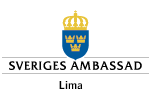 By Lauren E. Bohn and Tim Lister , CNN | June 29, 2012
By Lauren E. Bohn and Tim Lister , CNN | June 29, 2012
(CNN) — Amid all the furor about the seemingly omnipotent military in Egypt, the disbanded Islamist-dominated parliament and the debate over whether the Muslim Brotherhood will ban beer and bikinis, it's tempting to mutter, "It's the economy, stupid."
In 18 months of upheaval, all Egypt's economic indicators have headed south.
Growth is a projected 1.5% this fiscal year, far too feeble to provide a young and rapidly growing population with jobs (80% of Egypt's population is under age 30). Unemployment, one of the engines of the revolution, is estimated to be as high as 25% among the young. Tourism revenues have fallen sharply, and foreign reserves have dwindled to $15 billion. According to the United Nations, some 40% of Egyptians live below the poverty line; 14 million people subsist on less than $1 a day. Institutions are chronically weak and corruption is endemic.
President-elect Mohamed Morsi has his hands full.
Many critics say the military has handed Morsi a neutered presidency doomed to fail. But economists who have dealt with the Muslim Brotherhood's economic team describe the team as pragmatic, well-prepared and favorable to the free market.
Hernando de Soto, a noted economist who has helped his native Peru empower millions, has consulted with the Muslim Brotherhood. He says that when he met millionaire Khairat el-Shater, the Brotherhood's first presidential candidate who was disqualified for legal matters, el-Shater described himself as "businessman" on his card.
To read the complete article, please visit CNN


